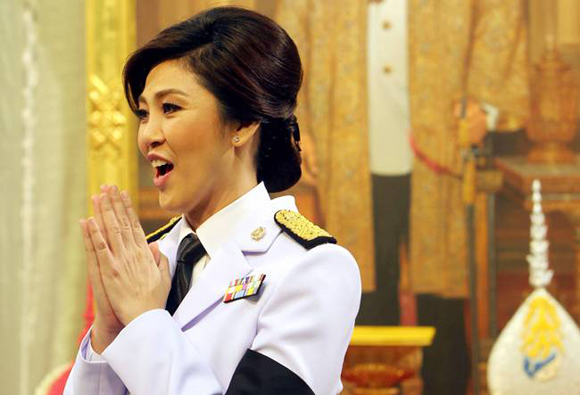Winning the Thai elections was just the first step for Yingluck Shinawatra.

LESS than a month after her landslide election victory in Thailand, Yingluck Shinawatra’s political honeymoon has come to an abrupt end. On July 3, the photogenic newcomer led her Puea Thai party to clinch 265 seats in the 500-seat parliament. But the election may have been the easy part: Thailand’s first female prime minister-elect now faces a mounting series of legal challenges to her victory and the broader task of fostering reconciliation in a deeply divided political landscape.
A key problem for 44-year-old Yingluck remains her close association with her brother, fugitive former prime minister Thaksin Shinawatra, who was ousted in a coup in 2006 and has been a bitterly divisive figure since. Thaksin has been banned from politics and sentenced to two years’ jail for abuse of power, but nonetheless directed the campaign from his exile in Dubai. During rural campaign stops, Yingluck whipped supporters into a frenzy by the mere mention of his name, and the party’s slogan – ‘Thaksin Thinks. Puea Thai Acts’ – made little attempt to obscure his outsized presence. Indeed, it was largely the reason for the party’s success among rural Thais, who lifted Thaksin to power in 2001 and 2005.
As a result, some have speculated that Yingluck could act as a Trojan horse for the mogul’s return, and his enemies are undoubtedly enduring sleepless nights mulling on the prospect. Although Yingluck has denied any plan to grant her brother a pardon, or pursue the architects of the 2006 coup that overthrew him, suggestions of a blanket amnesty that might quash his conviction are unlikely to die down.
Andrew Walker, a Thailand expert based at the Australian National University, said the party arguably had a mandate to bring Thaksin home, but were wary of galvanising anti-Thaksin opposition so early in the game. “My gut feeling is that they’re probably going to take this very slowly,” he said.
But the legal challenges are already mounting. Some complain that Yingluck’s cooking of noodles for voters, a folksy stunt performed during her wide-ranging campaign, amounted to ballot-buying. The claim has been dismissed by Thailand’s Election Commission, but the losing Democrat Party has filed another complaint alleging the involvement of banned politicians, including Thaksin, in the Puea Thai campaign.
The yellow-shirted People’s Alliance for Democracy (PAD) argues that up to two million Thais were unable to cast their ballots, thus invalidating Yingluck’s win. On July 12, the Election Commission held back its endorsement of Yingluck without giving any reason, pending investigations into a presumed raft of similar complaints.
Dr Pavin Chachavalpongpun, a fellow at Singapore’s Institute of Southeast Asian Studies, was unsurprised by the legal offensive, predicting that Thaksin’s enemies would not go down without a fight. The electoral challenges were a “judicial coup in the making”, he said, recalling the legal manoeuvres that led to the banning of the red-hued Thai Rak Thai and People Power Party after election victories in 2006 and 2007.
“I think the traditional elite will do everything in their power to prevent Puea Thai from forming a government,” Pavin said. The complaints, he noted, followed a generally divisive election campaign, in which the Democrats, led by incumbent Prime Minister Abhisit Vejjajiva, accused Thaksin and his Red Shirt supporters of responsibility for last year’s fatal clashes with the military, which left at least 90 people dead and 2,000 injured. “That’s not the way to heal the rift,” Pavin said. “Why do they want to drag Thailand into a vicious circle once again?”
But the sheer magnitude of the victory, as well as the spectre of a reprise of last year’s bloody confrontation, may figure into the equation. Andrew Walker said elements in the royal establishment and the army were unhappy with the results, but that it would be hard for any “sore losers” to mount a credible claim against Yingluck’s victory. “It is well recognised within Thailand and internationally that this was a free and fair election.”
In the wake of the poll, even the military seemed eager to downplay its disappointment. Outgoing defence minister and ex-army chief Prawit Wongsuwan said the army accepted the results and had no desire to “stray out of its assigned roles”. Not only that, but given the turmoil that engulfed Bangkok last year, Walker said the election had been a positive step. “We’ve had a free and fair and relatively peaceful election, we’ve had a clear result, and if a little bit of common sense and pragmatism is exercised, we have the potential for a smooth transition of government.”
Thailand’s current troubles, he continued, were an outgrowth of the rising expectations of a large swath of society, including its previously downtrodden rural underclass. The old leadership, who presided over a hierarchical society led by so-called ‘good men’, would ultimately have to accommodate themselves to this new reality.
Any attempt to “subvert” the election results would “set Thailand on a very dangerous road indeed”. “They’ve just got to accept that this has to change,” he said.
[Published in the Southeast Asia Globe, August 2011]



